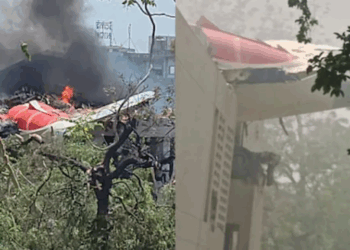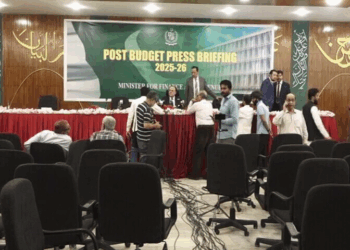Islamabad, December 21, 2024: Military courts have sentenced 25 civilians to prison terms ranging from two to ten years for their involvement in violent attacks on military installations during the May 9, 2023 riots, according to a statement from the Inter-Services Public Relations (ISPR) on Saturday.
This development follows a Supreme Court (SC) constitutional bench’s recent conditional approval for military courts to announce verdicts for 85 under-custody civilians linked to the riots. As per the SC order, individuals eligible for remission can “be released forthwith,” while those required to serve their sentences will be transferred to “concerned jail authorities.” The court emphasized that the judgments remain subject to appeal and further judicial review.
The riots erupted nationwide on May 9, 2023, following the arrest of former Prime Minister Imran Khan by paramilitary forces at the Islamabad High Court. These events led to widespread violence over 24 hours, targeting military installations, including Jinnah House, General Headquarters (GHQ) in Rawalpindi, and the Pakistan Air Force (PAF) Base in Mianwali. At least 10 people died, hundreds were injured, and 62 incidents of violence were recorded, causing losses amounting to Rs 2.5 billion.
The military described the events as “politically provoked violence” aimed at destabilizing the country. Key targets included the Lahore Corps Commander’s House (Jinnah House), GHQ, and ISI offices. The riots were characterized as an attempt to impose “political terrorism” through violence.
In its statement, ISPR clarified that the sentences were issued after thorough investigations and adherence to due legal processes. The convicted individuals, all linked to key military site attacks, received sentences ranging from two to ten years of rigorous imprisonment. Fourteen of the convicts were handed ten-year sentences, while others received terms ranging from two to nine years. Notable cases include:
- Jan Muhammad Khan — involved in Jinnah House incident (10 years)
- Muhammad Imran Mehboob — involved in Jinnah House incident (10 years)
- Raja Muhammad Ehsan — involved in GHQ attack incident (10 years)
- Rehmat Ullah — involved in Punjab Regimental Centre Mardan incident (10 years)
- Ali Iftikhar — involved in Jinnah House incident (10 years)
- Zia ur Rehman — involved in Jinnah House incident (10 years)
- Adnan Ahmed — involved in Punjab Regimental Centre Mardan incident (10 years)
- Shakir Ullah — involved in Punjab Regimental Centre Mardan incident (10 years)
- Anwar Khan — involved in PAF Base Mianwali incident (10 years)
- Abdul Hadi — involved in Jinnah House incident (10 years)
- Ali Shan — involved in Jinnah House incident (10 years)
- Daud Khan — involved in Jinnah House incident (10 years)
- Umar Farooq — involved in GHQ attack incident (10 years)
- Babar Jamal — involved in PAF Base Mianwali incident (10 years)
- Muhammad Afaq Khan — involved in Bannu Cantt incident (nine years)
- Daud Khan — involved in Chakdara Fort incident (seven years)
- Faheem Haider — involved in Jinnah House incident (six years)
- Muhammad Hashir Khan — involved in Jinnah House incident (six years)
- Zahid Khan — involved in Multan Cantt Check Post incident (four years)
- Muhammad Ashiq Khan — involved in Jinnah House incident (four years)
- Khuram Shahzad — involved in Multan Cantt Check Post incident (three years)
- Muhammad Bilawal — involved in Jinnah House incident (two years)
- Said Alam — involved in Punjab Regimental Centre Mardan incident (two years)
- Laeeq Ahmed — involved in ISI Office Faisalabad incident (two years)
- Yasir Nawaz — involved in Punjab Regimental Centre Mardan incident (two years)
All convicts retain the right to appeal as guaranteed by law.
Opposition Leader Omar Ayub criticized the sentences as “repugnant to justice norms,” rejecting military trials for civilians as unconstitutional. Senior PTI figures alleged unfair trials, lack of transparency, and coercion of confessions. In contrast, government representatives, including Defence Minister Khawaja Asif, called for holding the masterminds accountable. Information Minister Attaullah Tarar emphasized that the sentences set a precedent against political terrorism.
Legal experts raised concerns over the fairness of military trials. Barrister Asad Rahim lamented the SC’s conditional endorsement of such trials, describing it as a setback to constitutional norms. Lawyer Basil Nabi Malik termed military trials an “abomination,” warning they undermine democratic principles. Barrister Rida Hosain noted a disproportionately high conviction rate in these courts and limited appellate rights for convicts.
While emphasizing accountability for the May 9 violence, experts stressed that fair trials remain a cornerstone of democratic governance. Lawyer Mirza Moiz Baig underscored the importance of upholding due process to distinguish democratic systems from oppressive regimes.
The military’s firm stance against the May 9 violence marks a pivotal moment in Pakistan’s efforts to uphold justice and deter future unrest. However, the ongoing debate on the legality and transparency of military trials highlights the complexities of balancing national security with democratic principles.








